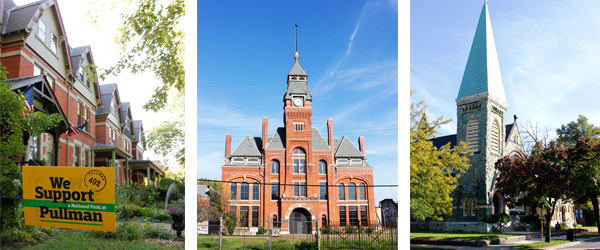Five Pullman Scholar Alumni share how the Pullman Foundation impacted their lives. “I am a graduate of Wendell Phillips High School (in Chicago’s Bronzeville neighborhood) and Northwestern University. I grew up in the Ida B. Wells Homes and the Clarence Darrow Homes (former public housing projects in Bronzeville ). I am one of seven children […]
Read More… from Pullman Scholar Alumni Testaments to the Pullman Legacy
